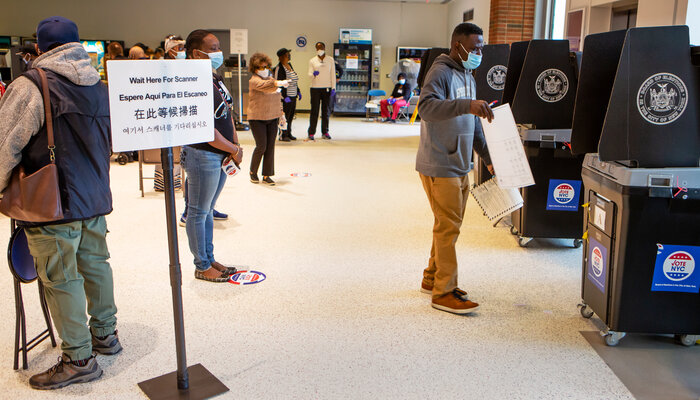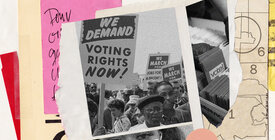Editor’s note: A more recent snapshot of state-level voting laws — both expansive and restrictive — can be found here.
Across the country, the effort to restrict the vote continues, with a wave of bills moving through state legislatures and becoming law.
Between January 1 and May 14, 2021, at least 14 states enacted 22 new laws that restrict access to the vote.footnote1_vOLd9Nj7BCPB4vrSwAHp-Gg1O8Rz88F1QCYfStRg9po_rA1pRidi0OoJ1 Provisions are categorized as restrictive if they would make it harder for Americans to register, stay on the rolls, and/or vote, as compared to existing state law. The United States is on track to far exceed its most recent period of significant voter suppression — 2011. By October of that year, 19 restrictive laws were enacted in 14 states. This year, the country has already reached that level, and it’s only May.
End Notes
-
footnote1_vOLd9Nj7BCPB4vrSwAHp-Gg1O8Rz88F1QCYfStRg9po_rA1pRidi0OoJ
1
Provisions are categorized as restrictive if they would make it harder for Americans to register, stay on the rolls, and/or vote, as compared to existing state law.








